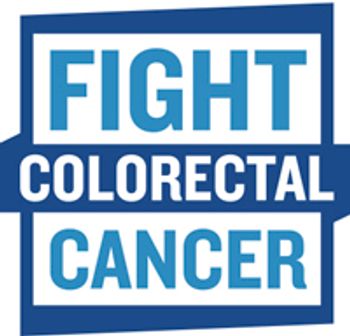
The risk of developing certain types of cancer can be increased by exposure to work-related stress.

The risk of developing certain types of cancer can be increased by exposure to work-related stress.

Researchers found that the rate of suicide in patients with lung cancer is much higher than those with other types of cancer.

Among long-term CRC survivors, regular use of aspirin is associated with overall survival and use of NSAIDs was significantly associated with improved survival only in individuals with KRAS wild-type tumors.

According to findings presented at the 2017 ASCO Annual Meeting, patients with low-risk advanced colon cancer would benefit from a reduction in chemotherapy post-surgery, without increasing risk of recurrence, to reduce risk of neuropathy.

An ongoing phase III trial is evaluating the combination of napabucasin, a stemness inhibitor, and FOLFIRI chemotherapy in patients with metastatic colorectal cancer.

More Stage I cancers were diagnosed after the passage of the Affordable Care Act (ACA), also known as Obamacare, within five screenable disease types: colorectal cancer, female breast cancer, cervical cancer, lung cancer, and prostate cancer).

Eating tree nuts may improve overall survival and reduce the risk of recurrence in patients with colon cancer.

The FDA has approved regorafenib as a second-line treatment for patients with unresectable hepatocellular carcinoma, who had previously received sorafenib.

For patients with hepatocellular carcinoma (HCC) who have progressed on sorafenib, regorafenib has shown to be an effective second-line treatment. The FDA has granted the agent a priority review

With antiretroviral drugs easing the burden of AIDS-defining cancers in HIV-positive patients, the most common cancers in this population are expected to shift to those associated with aging.

People with certain disabilities were found to be less likely to follow recommended guidelines for colorectal cancer screening.

According to findings presented at the 2017 AACR Annual Meeting, aspirin use was associated with lower mortality in colorectal cancer.

Fewer people are dying from cancer than years ago, according to a recent study.

An ongoing trial is evaluating the combination therapy of interleukin-10 agonist AM0010 and FOLFOX chemotherapy, for patients with metastatic pancreatic cancer.

On March 21, at 9 PM EST, the #CureConnect tweetchat will be focusing on screening and prevention. Sharyn Worrall, Patient Education Manager for FightCRC will be comoderating on this topic, which is especially important for colorectal cancer.

Patients new to ostomy often rely on nurses to help them select the appropriate supplies and assist with application.

A recent study has found that the rates of colorectal cancer are rising in young adults.

At the University of Virginia (UVA) Health System, the enhanced recovery after surgery (ERAS) program in colorectal cancer has improved outcomes of patients after procedures and reduced hospital costs.

According to new analysis, patients with metastatic colorectal cancer (mCRC) who engaged in daily exercise demonstrated improved outcomes.

A recent study links aspirin use to a reduced risk of pancreatic cancer.

A daily aspirin regimen could lower your risk of pancreatic cancer.

Patients with a recent diagnosis of diabetes mellitus (DM) and have undergone a surgical resection for pancreatic ductal adenocarcinoma may have poorer survival outcomes.

The incidence of hepatocellular carcinoma (HCC) in patients with hepatitis B is still on the rise, making screening and surveillance in this population all the more important.


Regorafenib was found to improve overall survival by nearly 3 months for patients with previously treated hepatocellular carcinoma.